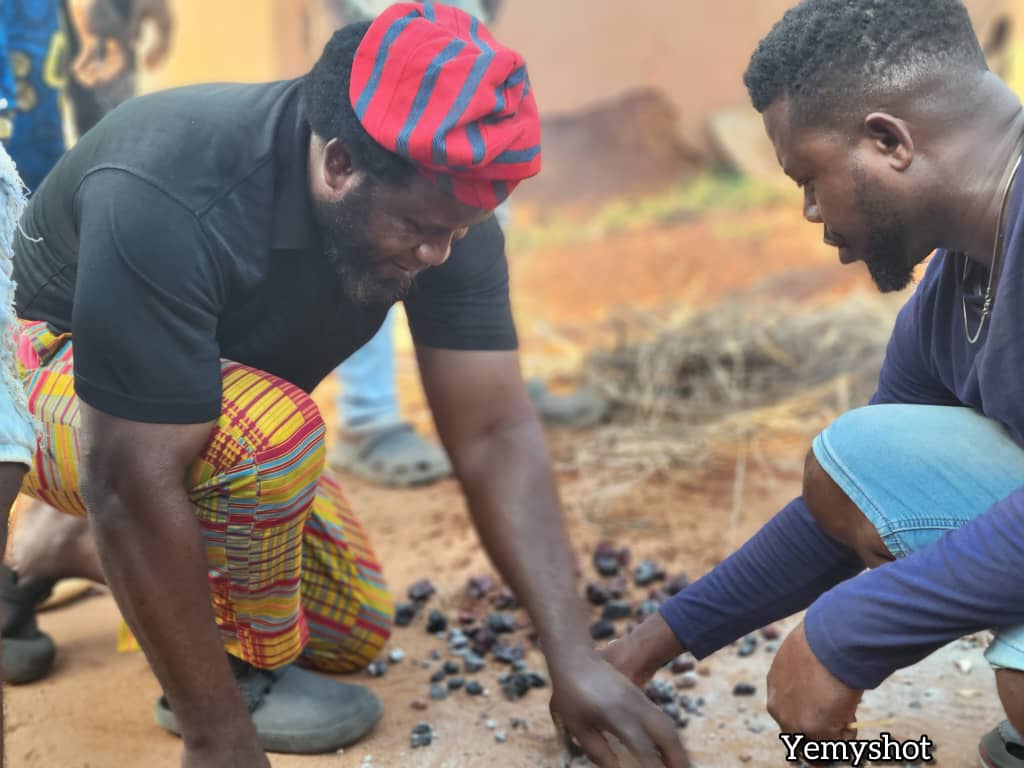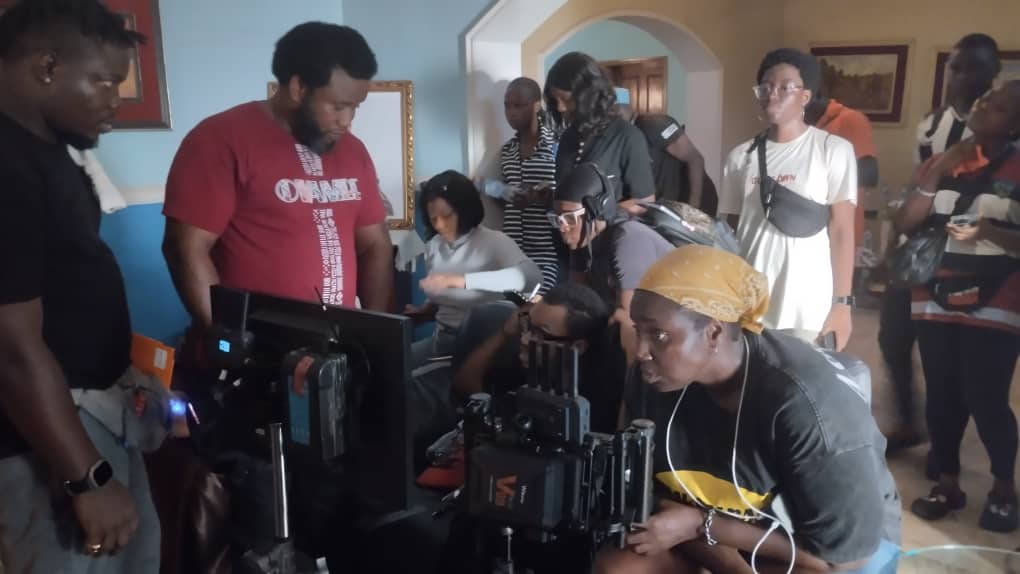Tunji Afolayan, the award-winning art director behind the critically acclaimed Netflix series Seven Doors, shares his experiences working on the show, his approach to set design, and the challenges of bringing a vision to life.

Afolayan’s passion for set design is driven by his desire to tell stories that resonate with audiences. As an art director, he believes that set design is a crucial element in storytelling. “It’s not just about creating a physical space; it’s about crafting an atmosphere that draws the audience in and enhances the narrative,” he explains.
Afolayan’s work on Seven Doors was a collaborative effort with the show’s producers and directors. He immersed himself in the script and the world of the story, working closely with the team to understand their vision and bring it to life. The result was a range of iconic sets, from the Ipebi to the Aganju Shrine, The vintage interiors, The tunnel, The Esusu shrine, The demolished house, each with its unique challenges and opportunities.

Afolayan’s experience working on Seven Doors is just one example of his impressive body of work. He has also worked on numerous other projects, including Jagun-Jagun, Amina, Ijakumo, King of Boys, Asiri Ade, Alakada Bad Boujee and many more. Throughout his career, Afolayan has demonstrated his commitment to excellence and his passion for storytelling.
However, Afolayan’s success is not just a personal achievement; it also reflects the growth and development of the Nollywood industry. Despite the challenges facing the industry, including Netflix’s recent decision to stop funding Nollywood producers, Afolayan remains optimistic about the future.

“Netflix’s decision to stop funding Nollywood producers is a wake-up call for us as an industry,” he says. “We need to find local solutions to our distribution problems. We can’t rely solely on international platforms to fund and distribute our content. We need to develop our own distribution networks, our own streaming platforms, and our own marketing strategies.”
Afolayan’s comments highlight the need for the Nollywood industry to take ownership of its own distribution and marketing. By developing local solutions and infrastructure, the industry can reduce its reliance on international platforms and create more opportunities for Nigerian filmmakers.

In addition to the challenges facing the Nollywood industry, Afolayan also discusses the importance of preserving Nigeria’s cultural heritage. As an art director, he has encountered difficulties in portraying centuries-old locations and cultures accurately. However, he sees this challenge as an opportunity to be innovative and resourceful.
Afolayan’s commitment to excellence and his passion for storytelling have earned him numerous accolades, a multi award winning across several platforms:

Amvcas: 2018 (winner Lotanna), 2022 ( winner Amina), 2023 (Nominee Battle on Bukka street), 2024 (Nominee Jagun-Jagun)
AMAA: 2022 (nominee Foreigners god ), 2024 (Jagun-jagun)
Golden movie Award: 2018(winner Lotanne), 2020(winner Foreigners god)
Best of Bollywood: 2024(winner Jagun-jagun)
The Importance of Recognizing Filmmakers Behind the Camera

Afolayan’s success highlights the importance of recognizing the hard work and dedication of filmmakers behind the camera. As he notes, “It’s unfortunate that the people behind the camera are often overlooked. Without us, the film wouldn’t be the same. I think it’s essential to recognize and celebrate the hard work and dedication of the entire filmmaking team.”
The Role of Funding in Movie Projects
Funding is a crucial aspect of movie production, and Afolayan emphasizes its significance. “Funding is crucial in movie projects,” he states. “It determines the scale and quality of the production. Without adequate funding, it’s challenging to bring a vision to life.”
What’s Next for Tunji Afolayan?
As Afolayan looks to the future, he remains committed to his craft and passionate about telling stories that resonate with audiences. With his exceptional talent and dedication, we can expect to see more of his outstanding work in the years to come.




